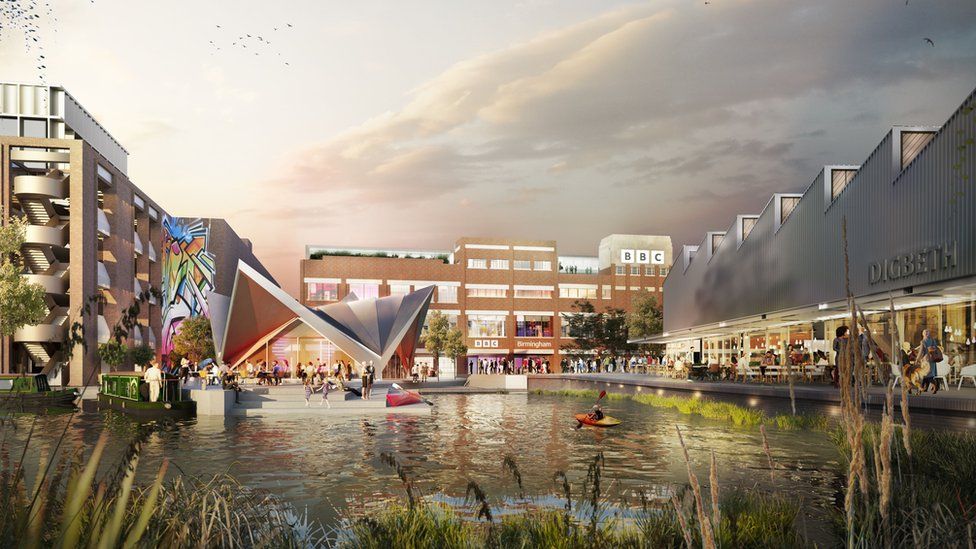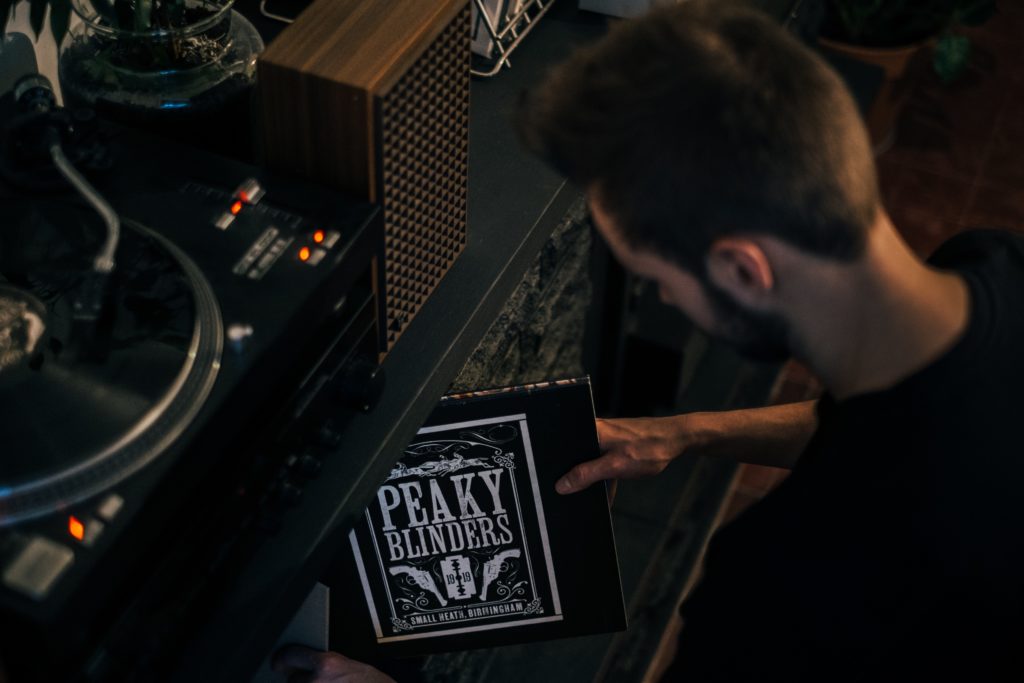
Dr James Davies examines the role the Creative Industries can play in helping areas to recover economically, like Digbeth in Birmingham, which continues to grow as a creative hub. This blog post was produced for inclusion in the Birmingham Economic Review for 2022. The annual Birmingham Economic Review is produced by the University of Birmingham’s City-REDI and the Greater Birmingham Chambers of Commerce. It is an in-depth exploration of the economy of England’s second city and a high-quality resource for informing research, policy and investment decisions. This post is featured in Chapter 4 of the Birmingham Economic Review for 2022, on place and connecting sustainable communities. Read the Birmingham Economic Review. Visit the WMREDI Data Lab to find out more about Birmingham.
Introduction
The announcement in August 2022 that the BBC is intending to relocate the headquarters of BBC Midlands to a new home at the old Typhoo Tea factory, located in the Digbeth Creative Quarter at the heart of Birmingham, offers a great opportunity to consider the key role that creative industries can play in post-pandemic recovery, the variety of assets and strengths Digbeth possesses, and the implications and applications of creative growth beyond the immediacy of the sector itself.

Pre-Pandemic
In the ten years prior to the pandemic, creative industries in the UK grew in GVA by almost double the rate of the UK average across the economy. In 2016, the creative industries were worth nearly £92bn to the UK economy. Within the creative economy, only ‘IT, software and games’ contributed more to that growth than ‘Film and Television’. Across the WMCA region, creative industries were estimated to have contributed more than £4bn in GVA in 2019. The colossal impact of the pandemic over the past two years, both on the region and on the sector has been written about extensively, both on these pages and elsewhere, and so instead I want to focus in this piece on the significance of the BBC Midlands relocation as we look ahead to the role creative industries can play in post-pandemic economic recovery.
Birmingham’s Digbeth
Spurred primarily by the phenomenal success of ‘Peaky Blinders’, the West Midlands, and Digbeth in particular is becoming known as a home of a variety of high-end scripted and unscripted television. A well-established creative and cultural cluster, with historic specialisms including arts, music and design, the district is now home to a number of production hubs and spaces. Key among these include the Custard Factory, a 60,000 sqm creative and digital workspace, and Fazeley Studios, a creative workspace and event space. Even prior to the BBC move, film and TV was the second largest creative subsector in the Digbeth cluster. Though it will be the largest, the BBC Midlands headquarters will not be the only BBC presence in the city, with Birmingham home to BBC3, the BBC Academy, and plans to relocate the Asian Network and Newsbeat teams to the city, as part of its five-year across the UK plan.

Filming of hit BBC show ‘Masterchef’ is being relocated to Digbeth too. The development of a 50,000 sqft, £18 million Creative Content Hub, which includes £3 million worth of investment from the Greater Birmingham and Solihull local enterprise partnership (GBSLEP) is underway in the Creative Quarter, promising to be a content hub for independent television productions, as well as being the headquarters of Create Central, an industry-led, creative industries focused skills and training initiative, including £150 million worth of investment from the WMCA, running boot camps and programmes to boost content production skills across the West Midlands. Create Central, was also highlighted in the BFI Skills Review in 2022 as an exemplar of good practice in creative industries focused skills and training provision.
The growth of Digbeth’s Creative Quarter, therefore, looks only set to continue as we look ahead to post-pandemic recovery. The relocation of BBC Midlands shows a real vote of confidence in the growth and development of the cluster, and in conjunction with the efforts of the Creative Content Hub, and Create Central the future of both public service broadcaster (PSB) and independent television production appear to be very bright indeed. Creative goods and services also possess high, instant, in the case of digital content, export potential.

Almost £38 billion worth of services were exported by creative industries in the UK in 2019, with over 20 billion in goods and service exports growing by more than 10%, and goods by more than 1/3. But there are applications and potential beyond just the creative industries themselves. A combination of stuttering lockdown schedules and demand for content across Streaming Video-on-Demand (SvoD) services such as Netflix and Amazon Prime have precipitated an unprecedented demand for content and provided the demand for personnel can be met, there is a real ‘post-Covid boom’ in television production.
Strategy
The previous West Midlands Local Industrial Strategy highlighted the cross-sectoral collaborative potential of creative services, for example, the application of AR and VR in aerospace automotive and healthcare sectors. Levelling up white paper has already demonstrated a prioritisation of regional, place-based policy making, and as we await the publication of the UK government’s sector vision later in 2022, it is hoped priorities will reflect the huge collaborative potential creative talent has outside of its own industries. as the digital revolution continues to envelop all aspects of work and life, and the skills and competencies for all forms of digital production (film, television, video games, AR/VR) share more and more commonalities, Digbeth is well-placed to return to, and exceed, its pre-pandemic growth.
This blog was written by Dr James Davies, Research Fellow, City-REDI / WMREDI, University of Birmingham.
Disclaimer:
The views expressed in this analysis post are those of the authors and not necessarily those of City-REDI / WMREDI or the University of Birmingham.
